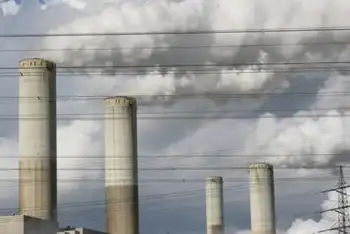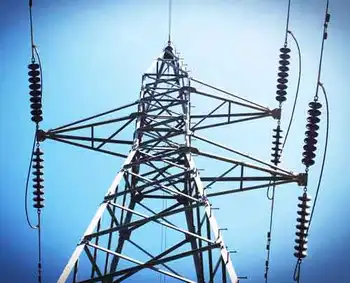Third exec at Enron pleads guilty
By San Francisco Chronicle
Protective Relay Training - Basic
Our customized live online or in‑person group training can be delivered to your staff at your location.

- Live Online
- 12 hours Instructor-led
- Group Training Available
John Forney, 42, of Upper Arlington, Ohio, is the third former Enron executive to admit lawbreaking during the 2000-01 power shortages and price spikes that led to rolling blackouts and multibillion-dollar rate increases. He faces up to five years in prison.
Timothy Belden, Forney's former boss at Enron's West Coast power trading office in Portland, and Jeffrey Richter, another top Enron trader, are awaiting sentencing for fraud. Both talked to federal agents about Forney and identified him as a chief strategist, according to court documents.
"We have now obtained convictions of the top three Enron executives most directly responsible for manipulating the energy markets in California at a time unique in our history, when the lights were going off and the grid was in danger of shutting down,'' said Kevin Ryan, U.S. attorney in San Francisco. "These executives will now be required to help obtain restitution for the same victims they defrauded, namely the citizens of California and the other Western states."
But California has had little success recouping energy overcharges for its consumers, largely because of limits on reimbursement imposed by the Federal Energy Regulatory Commission.
State Attorney General Bill Lockyer sued Enron in June for damages allegedly caused by commodities fraud and unfair competition. Forney's plea agreement requires him to cooperate with Lockyer and with federal prosecutors looking into Enron and other companies.
"We are obviously interested in sitting down and having a good heart-to-heart with Mr. Forney to see what he may have to add to our body of evidence,'' said Lockyer spokesman Tom Dresslar.
Forney's attorney, Edwin Prather, said the plea agreement was "an opportunity for John to help right the wrongs that he helped create'' and to help the government in "understanding the bigger problem of misdeeds of the energy industry."
He said Forney had nothing to do with the case against former Enron Chairman Kenneth Lay, indicted last month on fraud charges connected to the Houston-based company's collapse in late 2001.
Forney joined Enron in 1993 as a low-level generation unit manager, then moved into the company's expanding field of energy trading, where he thrived. He was assigned in 1997 to the Portland office, which handled California power trading under the state's ill-fated electricity deregulation law, and became manager of the real-time trading desk in 1999.
That desk, according to federal prosecutors, hatched the colorfully named schemes -- like "Death Star,'' "Get Shorty'' and "Ricochet'' -- that cheated consumers, fooled state overseers and generated profit increases of as much as 1,500 percent in two years.
Forney said recently that he was the author of "Death Star," which was also known within Enron as Forney's Perpetual Loop. Company traders created the appearance of congestion on the California power grid, then collected a premium price from the state for relieving congestion and delivering electricity where it was needed; in fact, that electricity was looped through transmission lines outside the state and never delivered anywhere.
"Enron purported to move electricity in directions that would relieve congestion, when in fact the electricity was scheduled to flow in a circular pattern,'' Forney said in his plea agreement. He said the California Independent System Operator, which managed the grid, was unable to detect the pattern.
Evidence of such manipulation was starkly illustrated in June when audiotapes of conversations between Enron traders in Portland were released during a legal case in Washington state.
"If the line's not congested, then I just look if I can congest it," one trader said during an August 2000 phone call. "If you can congest it, that's a moneymaker no matter what."
In another taped call, in November 2000, two Enron traders chortled about fleecing "Grandma Millie'' and "those poor grandmothers in California."
Forney's plea agreement also acknowledged a role in "Ricochet,'' in which Enron bought price-capped electricity from the California market and then resold it to California at a price above the cap.
In a quietly arranged appearance before U.S. District Judge Martin Jenkins in San Francisco, Forney pleaded guilty to a single count of conspiring to commit wire fraud, and the government agreed to drop 10 other charges contained in a grand jury indictment last December.
Prather, Forney's attorney, said the plea agreement does not specify a sentence, but Forney hopes for a recommendation of leniency based on his cooperation.











